Best D&D Alternatives – 14 TTRPGs You Can Start Tomorrow!
The D&D OGL 1.1 controversy has created a huge rift in the community. Major content creators are migrating to D&D alternatives. And, I can’t blame them. I’ve always liked other systems and settings better. So, let me present you with the Best D&D alternatives today.
The timing for this scandal is poor, to say the least. Just earlier this month, we got news of a new live-action D&D show. But, it happened at the same time that the new system’s controversy took flight.
Naturally, I was fairly bummed out about it. I’d been looking forward to watching the show and the new movie. However, it’s a great time to look at Dungeons & Dragons alternatives. If anything, it’s the chance to find the next tabletop RPG to catch your interest.
Well, I’ve tried several tabletop RPGs in the last couple of years. And, several have replaced D&D as mine and my friend’s main game. Moreover, I made sure to include something for everyone: sci-fi, fantasy, horror, and more.
So, with that out of the way, let’s get started.
#1. Blades in the Dark: The best D&D alternative for a new taste
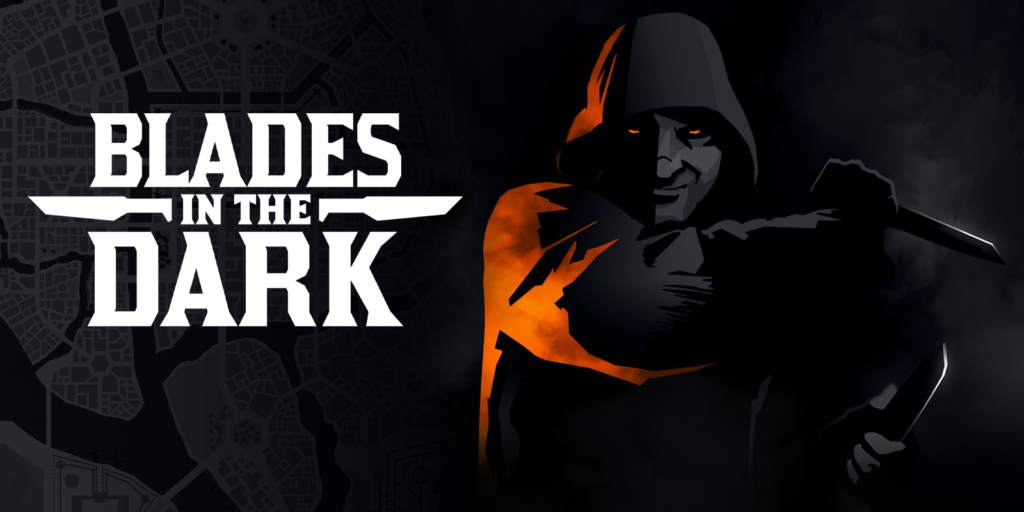 Fight justice, other gangs, and… Phantoms? Yeah, this game is something. (Image credit: John Harper & Evil Hat)
Fight justice, other gangs, and… Phantoms? Yeah, this game is something. (Image credit: John Harper & Evil Hat)
Firstly, let’s talk about my second favorite tabletop RPG: Blades in the Dark. I’m getting to it first for two reasons. Firstly, it’s one of the games that benefitted the most from the scandal. Secondly, it’s one of the easiest systems to understand and get used to.
Blades in the Dark is a narrative-first tabletop RPG. That means it avoids intricate systems to favor storytelling. In fact, the only mechanics are different skills that use d6s and a stress system.
For every action, you must roll a number of d6s. From 1 to 3, you fail the action. 4 and 5 mean you succeed with consequences. And, a 6 means you succeed cleanly. This system facilitates improvisation and narration.
The stress system lets you use “flashbacks” to turn the tides. Let’s say you run into guards using a secret language. You can spend stress to say you previously learned the language. It’s a pain for Game Masters—but a blast for the party.
As for the setting, it’s unique. Think of Dishonored: a steampunk universe and feeling. However, the deceased turn into phantoms that still roam the earth. Thus, cities have to create defense grids to prevent their intrusion. That also means you’ll face ghosts as well as gangs and law enforcement.
As for players, you’re all part of a gang. You can be anything: drug dealers, robbers, and even cultists. You’ll have to level up your character and gang simultaneously. The party has to manage its hideout, contracts, and more.
Overall, it’s easily one of the most intriguing tabletop RPGs available in the market right now. Plus, its systems take an hour at most to get used to. It’s perfect if you enjoy narration over gameplay mechanics.
#2. Shadowrun: My personal favorite D&D alternative
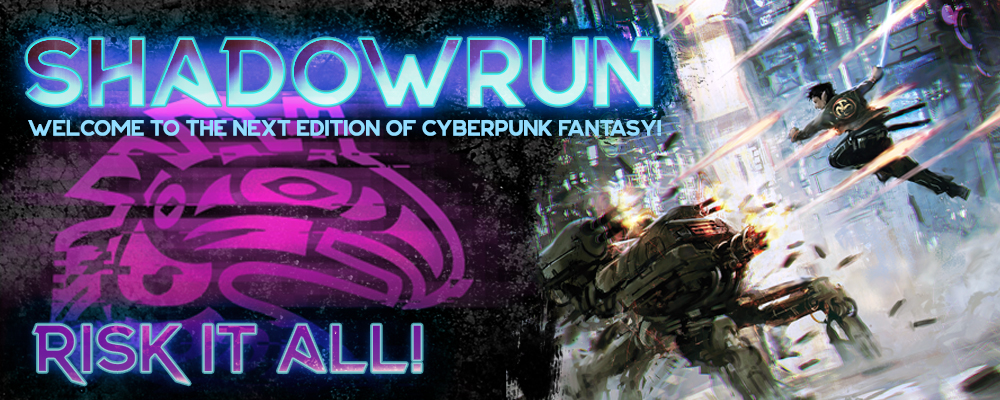 If you want hardcore Cyberpunk, this is it. (Image credit: The Topps Company, Inc.)
If you want hardcore Cyberpunk, this is it. (Image credit: The Topps Company, Inc.)
Blades in the Dark is my second favorite tabletop RPG. But, the best D&D alternative in my book is Shadowrun. However, it doesn’t score first place because it’s not for everyone. It’s easily the most complex system on this list.
Shadowrun is a combination between cyberpunk and fantasy. You have regular cyberpunk features: futuristic settings, high-tech gear, and augmentations. But, it also features a complex magic system with multiple branches.
In Shadowrun, players embody any type of character. They can be gangsters, bounty hunters, tech sorcerers, and more. You can do anything in this universe. The downside is that virtually everything has a rule. So, its complexity can be off-putting for many.
Let’s take one of my characters as an example. I was a bounty-hunting sniper. My rifle had a dozen attachments. And, each attachment changed my gameplay. Aiming, shooting, and reloading have unique mechanics. The same goes for ammo and weapon mods.
Then, we have technomancers, magicians, hackers, and more. Finally, add your desired race and its unique perks. Your party might spend months playing. Still, they’ll probably be figuring out different mechanics.
That said, this is the perfect game for gameplay addicts. I’m a sucker for complex rulesets and freedom. Then, a game that considers almost everything in the world is my cup of tea.
Plus, the game isn’t as intricate as it once was. Right now, it’s running its 6th edition. And, the game has become simpler since around the 3rd or 4th edition. I haven’t tried 6e, but it’s probably a lot easier to understand.
But, don’t worry if you want to taste the complexity that made it famous. All previous editions are still available. You can also find them to be a steal. The 1st edition barely grazes the $10 price tag!
#3. Cyberpunk: A D&D (and Shadowrun) alternative for simplicity’s sake
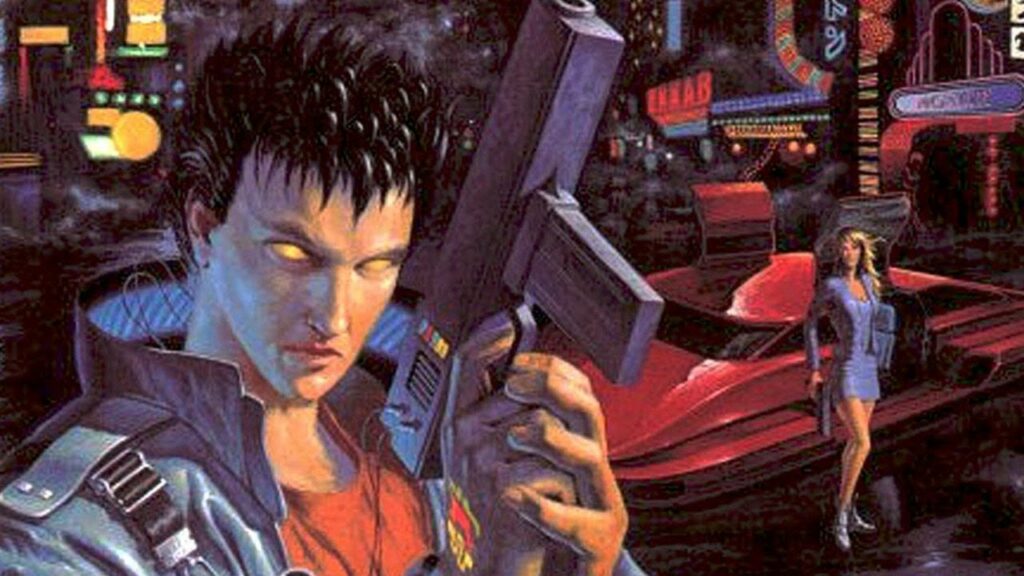 The original cyberpunk experience without all the fluff. (Image credit: R. Talsorian Games)
The original cyberpunk experience without all the fluff. (Image credit: R. Talsorian Games)
Now, what if you like the cyberpunk setting but don’t want fantasy elements? Well, that’s where Cyberpunk comes into play. Cyberpunk is easily one of the oldest tabletop RPGs still going strong. Plus, Cyberpunk 2077 and Edgerunners revitalized it.
It brings roughly the 4th iteration of the genre-defining 1980s game. As for its setting, it’s fairly similar to Shadowrun. But, it does away with the magic and other fantasy elements. We’re all humans here.
You can find it referred to by many names, like Cyberpunk 2020 or Cyberpunk Red. All of these are just names for different editions. In the end, it’s just to differentiate it from the general cyberpunk genre. This is what you want to play if you liked Cyberpunk 2077.
The rules are more akin to traditional tabletop RPGs: you have a move action and a normal action. You also have rules for firing, armor, cover, and more. You can even grab people as human shields.
The main additions to Cyberpunk are Netrunning, Empathy, and Cyberpsychosis.
Netrunning is hacking. Players engage in a virtual world using interface plugs. Everything happens faster on the NET. Netrunners could act far from the party until the NET’s destruction.
As for Empathy and Cyberpsychosis, they relate to cyberware. Using too much cyberware costs Humanity and Empathy. It affects how characters relate to others. Losing all Empathy causes cyberpsychosis, turning player characters into NPCs.
Other than that, it’s not all that different from your regular tabletop RPG. All characters are human and split into ten classes. You can assign or randomize skill point distribution. But, you level up your skills instead of your overall level. But, it mostly uses d10s.
If you’ve played Cyberpunk 2077, you know everything about the setting.
#4. Spire: The City Must Fall/Heart: The City Beneath: Two familiar D&D alternatives
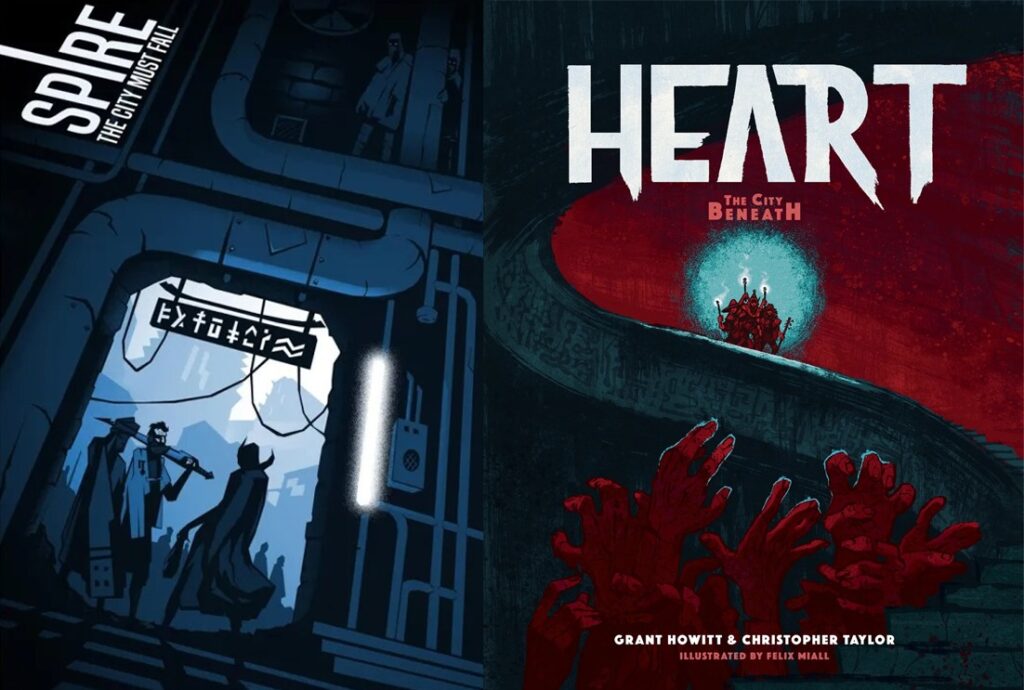 If Elves, sedition, and revolution are your game, try this. (Image credit: Rowan, Rook and Decard)
If Elves, sedition, and revolution are your game, try this. (Image credit: Rowan, Rook and Decard)
Now, these were two of my most-expected settings. I’d been wanting to play this for a while. I’m talking about Spire: The City Must Fall and Heart: The City Beneath. They’re paired because they both use the same system and lore.
Both games take place in a city that’s a huge spire. No one knows how it came to be. But, Elves have practically enslaved the Dark Elves. And, there’s an entire ecosystem lying beneath the city. That’s where both games take place.
In Spire, you’re a Dark Elf. You’ll be working as part of a revolution against the Elven bourgeoisie. Thus, your character classes are anarchists, smugglers, rogues, and all that sass. Of course, there’s also magic.
Spire is more like your regular tabletop RPG. You must complete quests, interact with others, and see what’s happening. You’ll be making allies and enemies as you lead the uprising.
In Heart, you’re a poor soul sent to that dangerous world underneath the city. There, you’ll find entire societies have formed. You may run into camps and even towns created by the others sent there. But, it’s a whole different world, dangerous for many different reasons.
On the other hand, Heart is more of a dungeon crawler. It cares more about gameplay mechanics. And, you’ll likely face a lot more engagements here.
The setting is also quite interesting. You can be an anarchist who can convince the masses. Others can take more socially-inclined classes or sorcerers. There’s something for everyone.
The game also uses d10s and familiar mechanics. So, there aren’t a lot of new systems to get used to. Instead, you can focus on the amazing setting and intriguing politics of Spire. Or, you can test your skills and luck in the dungeons of Heart.
#5. Pathfinder/Starfinder: The original best D&D alternative
 Paizo has been D&D’s arch-enemy for a good while now. (Image credit: Paizo)
Paizo has been D&D’s arch-enemy for a good while now. (Image credit: Paizo)
Now, let’s pair another two games: Pathfinder and Starfinder. The former was the original D&D competitor, evolved from D&D’s 3e. The latter is basically its sci-fi version.
Both games share virtually the same rules, with some exceptions. And, Paizo made sure that the characters and monsters were compatible between both. However, there are some obvious differences.
Pathfinder is a lot more similar to your classic D&D campaign. It’s fantasy-themed in a more “medieval” setting. Since its inception, it was the Best D&D alternative available. And, the OGL 1.1 scandal only benefitted it.
Paizo has traditionally used D&D’s OGL, adapted to their system. But, they just announced that they’d develop a new ruleset. So, I won’t delve too much into the mechanics here.
On the other hand, we have Starfinder. It’s easy to define it as a sci-fi Pathfinder and call it a day. But, it’s a bit more intricate than that.
Firstly, it simplified several systems from its predecessor. Moreover, it extends the possibilities of what you can do during campaigns. It mostly maintains the combat and magic systems of its predecessor. But, it also introduces sci-fi weapons and starships!
The differences aren’t all that noticeable for the most part. So, your choice will depend mainly on your preferred setting. But, if you’re tied, I’d recommend starting with Starfinder. Its simplified mechanics make it easy to transition into Pathfinder.
Other than that, enemies, races, and even classes are roughly the same. Character creation is mostly equal as well.
It’s also a great beginner game since it’s very similar to D&D. You have a D20 system, skills, initiative, and combat rounds. Plus, it has the same modifiers as its competitor. So, you’ll have an easy time getting used to it.
#6. Alien: A D&D alternative for fans of the Alien universe
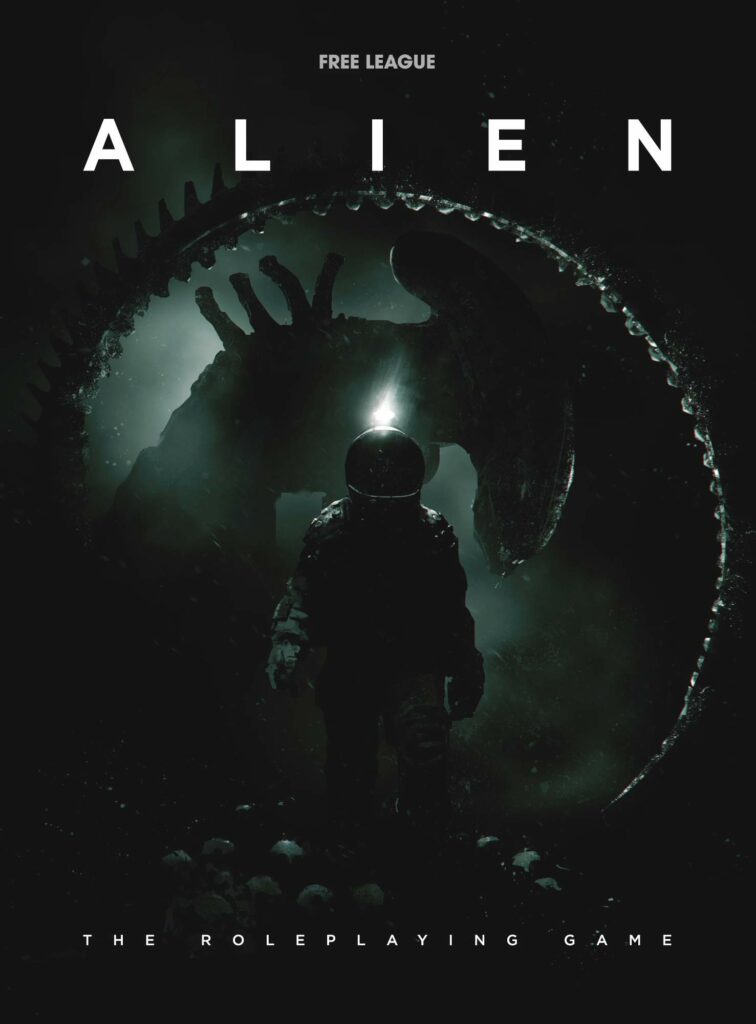 This tabletop RPG combines many of my jams: suspense, horror, and panic. (Image credit: 20th Century Studios & Free League)
This tabletop RPG combines many of my jams: suspense, horror, and panic. (Image credit: 20th Century Studios & Free League)
If you ever wanted to be Amanda Ripley, then this game might not be for you. Instead, it’s perfect for those longing to be the poor side characters. Jokes aside, Alien: The Roleplaying Game is a great game.
Free League really nailed the real horror in Alien: the unknown. This tabletop RPG conjures up all the dread of the movies in your living room. And, it’s not just because of the setting. The game’s systems also lend themselves perfectly.
Players need to pay attention to everything their GM says. The tension climbs with every spoken detail, thrown die, and used skill. Drama permeates the game. That’s true for both monsters and friends freaking out.
Plus, you can tackle almost anything in the universe. In some campaigns, you can embody roving explorers. In others, your party might be a bunch of stranded marines. Or, you might just be a cook in a compromised colony.
The possibilities are endless.
Even better, the rules do everything to stay out of the way. If you’ve played other Free League games, you’ll feel at home. The game uses a d6 system and dice pools based on character stats and skills. In other words: you’ll still be hoping to roll at least one six.
There’s also a stress dice mechanic. This feature adds extra dice to your pool. It works when you push through rerolls or witness traumatic events. In most cases, it offers extra success chances. In bad cases, it can backfire horribly.
Finally, you can play Alien: The Roleplaying Game in two different ways. You can go full-blown horror. But, you can also play it as a regular campaign. My group is planning one in a colony. And, it’s more about exploring corporate corruption.
That doesn’t mean murderous monsters are out of the picture.
#7. World of Darkness: A whole new (and intuitive) alternative system to D&D
 This one’s a supernatural world set in modern times. What else do you need? (Image credit: (Image credit: Paradox Interactive)
This one’s a supernatural world set in modern times. What else do you need? (Image credit: (Image credit: Paradox Interactive)
Now, we’ll talk about my original Best D&D alternative: World of Darkness. Why is it the best one for me? Well, it’s partly because it was the first tabletop RPG I played. But, it’s also because it’s a huge world made up of several games.
I actually played Vampire: The Masquerade first. But, that’s just a part of World of Darkness. There’s also Hunter, Wraith, Werewolf, and more. Each game lets you take on different classes and skills. Plus, there’s a ton of content in each of them. Just Vampire has a dozen expansions.
Plus, the rules and systems are pretty easy to understand. You can create your character in a few minutes. Then, all you need to know is how to roll dice. You roll a d10 for each point in the skill you want to use. Anything above 8 is a success. 10’s count as a success and let you reroll for an extra chance.
That covers pretty much everything: from searching and crafting to combat.
Of course, there are some nuances. For instance, damage splits into several types with different consequences. Some races can only take damage from certain sources. But, understanding the basic rules is enough for most of your campaigns.
Then, we have my favorite part: the setting.
World of Darkness takes place in the modern world. That means current events, technology, and cultures. You can visit real-world locations and re-experience them in your games. For instance, some friends played a campaign that took place in their neighborhood.
Because of that, this game can be the most immersive experience you have. You can use common knowledge about locations. That way, you can tackle situations in unique ways.
#8. Warhammer 40k Wrath & Glory: The best D&D alternative for Warhammer fans
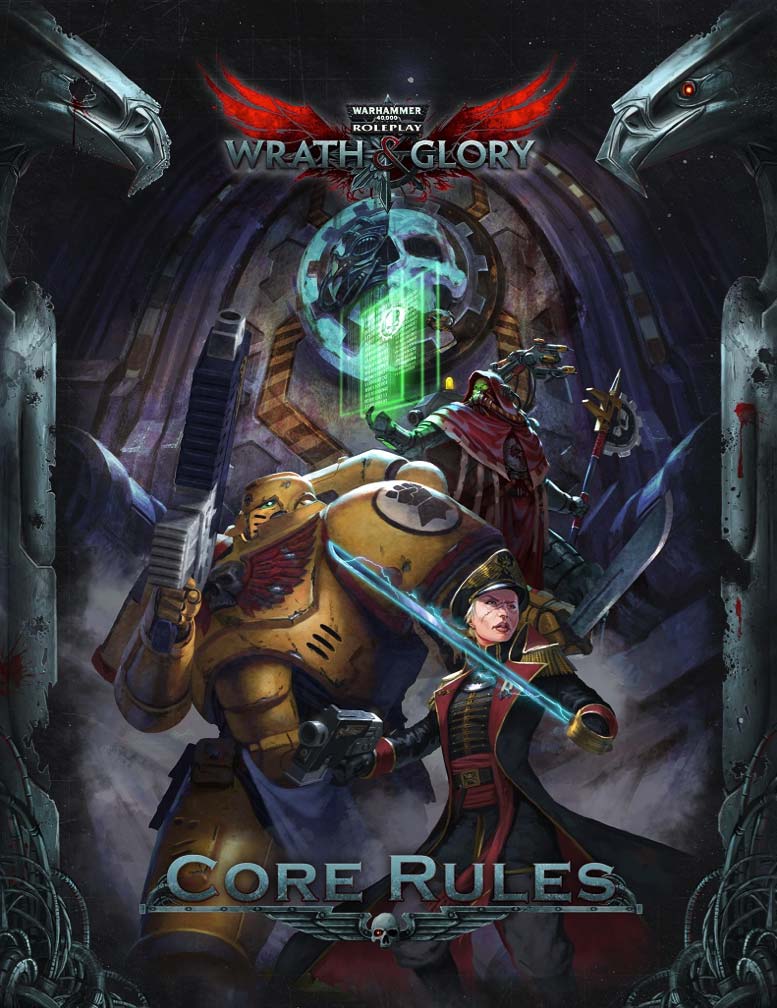 Roleplaying in one of my favorite universes of all time? Sign me in! (Image credit: Warhammer Community)
Roleplaying in one of my favorite universes of all time? Sign me in! (Image credit: Warhammer Community)
I’ll be honest with you. I haven’t played this one. But, Warhammer 40k is easily one of my favorite fictional universes. Its characters, lore, and everything caught me the first time I saw it. Since then, I’ve been a sucker for it.
So, I had to include its tabletop RPG on this list.
Warhammer 40k: Wrath and Glory is everything you’d like about the war game. But, it sheds the overcomplicated rules. Plus, you get to avoid Games Workshop’s prices. Cubicle 7 came up with a fantastic but grim tabletop RPG.
This game doesn’t take place in the Imperium of Man per se. Instead, players travel through the Gillead system, cut off from the Imperium.
As for character creation, players have two choices. There’s a standard, faster process. And, there’s advanced character creation, which lets you customize everything. All players work with a Framework. It’s basically a sales pitch identifying the campaign and goals. Players who work toward the Framework gain bonuses.
Characters level up in Tiers. The higher the Tier, the stronger you are. Tiers also work with archetypes. These let you create characters through species, factions, and more. You can be part of the Imperium, Chaos, Aeldari, and even Orks.
There are also sub-factions. Almost all factions have one. But, the Imperium has nine, including the Astra Militarum, Space Marines, and Inquisition. There are also different species within it.
Character attributes are fairly standard. You have strength, toughness, initiative, agility, willpower, intellect, and speed. Plus, there’s a unique attribute called fellowship. You can invest XP in them or improve them through archetypes
Tests are fairly straightforward, using a d6 pool. You add your attributes and skills to determine your pool. The player’s goal is to roll as many 4+ as possible. You must roll a number of successes depending on the task’s difficulty. Plus, there’s an additional Wrath die, which can complicate the job.
#9. Symbaroum: A darker D&D alternative with a (somewhat) similar setting
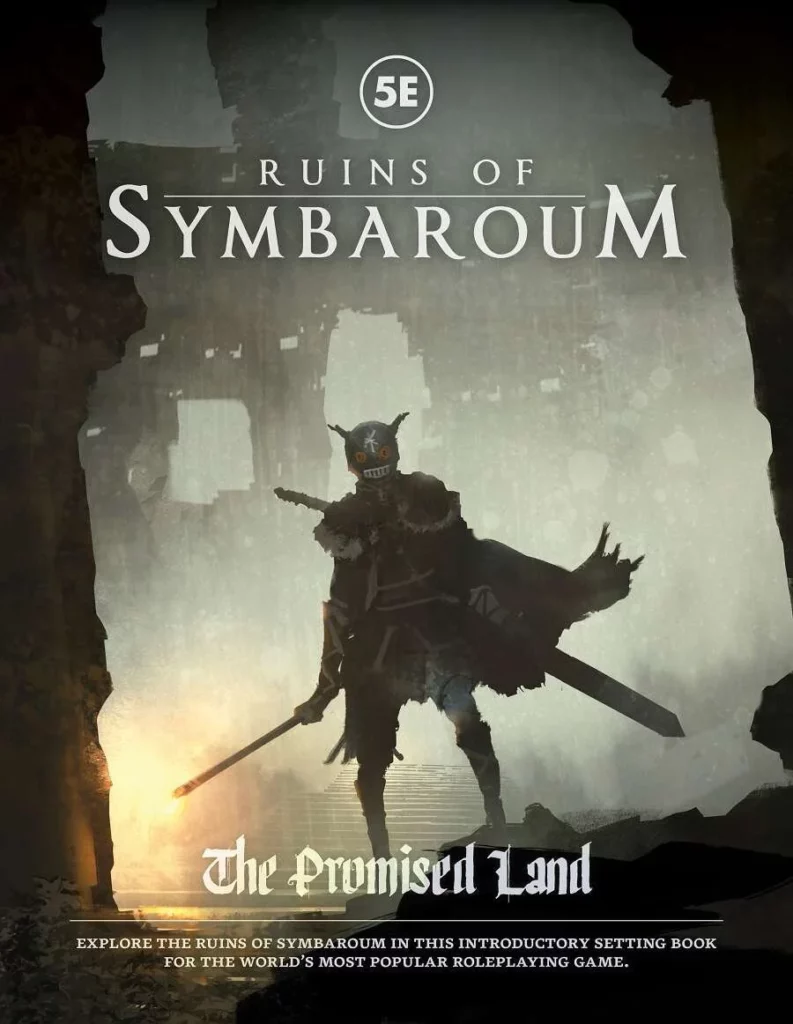 Imagine D&D but with a way more somber setting. (Image credit: Free League Publishing)
Imagine D&D but with a way more somber setting. (Image credit: Free League Publishing)
Symbaroum is one of the Best D&D alternatives because of its familiarity. It features many of D&D’s races and classes. But, all of them bring a unique twist. Plus, the entire setting is D&D but dark and grim.
This is another Free League game, too. The publisher has enjoyed quite a bit of success under the covers. You might not notice them immediately. But, they’re everywhere.
Back to the game, Symbaroum has two presentations. You can play its 5e version. It’s basically the same game with 5e’s system. But, it also has its own system. That’s what I’d recommend for a break from D&D.
Essentially, Symbaroum is what would happen if the entire D&D world fell into darkness. The forests are cursed and dangerous. Magic can corrupt you and cause permanent disfigurement. Everything is ugly and gritty.
The classes are also fairly interesting. You don’t have Rogues per se. Instead, there are spies and cultists. Rangers can come as bounty hunters, witch hunters, or monster hunters. There are religious zealots instead of clerics.
You get the point.
Magic is a lot more dangerous, too. Using spells or magic items nets you corruption. Go above your threshold and you’ll face the consequences. I had a witch hunter who found a cursed sword. During a quest, he broke his corruption threshold. He grew blisters in his throat and became mute.
A bit of corruption later, he just vanished.
Corruption can also cause you to crave raw meat. Others might feel uncontrollably drawn toward corrupted objects.
Of course, if you play with 5e rules, you know how to play. But, the original system has a bunch of quirks. For instance, you can specialize in certain skills. Doing so makes you more proficient in combat or certain tasks.
You’ll also find classic races: humans, elves, trolls, and more. Each one has a unique twist. For instance, changelings are darker than usual. Elves kidnap human babies and replace them with changelings. Therefore, they’re pariahs—but useful due to their shapeshifting.
#10. The One Ring: A D&D alternative based on the genre’s roots
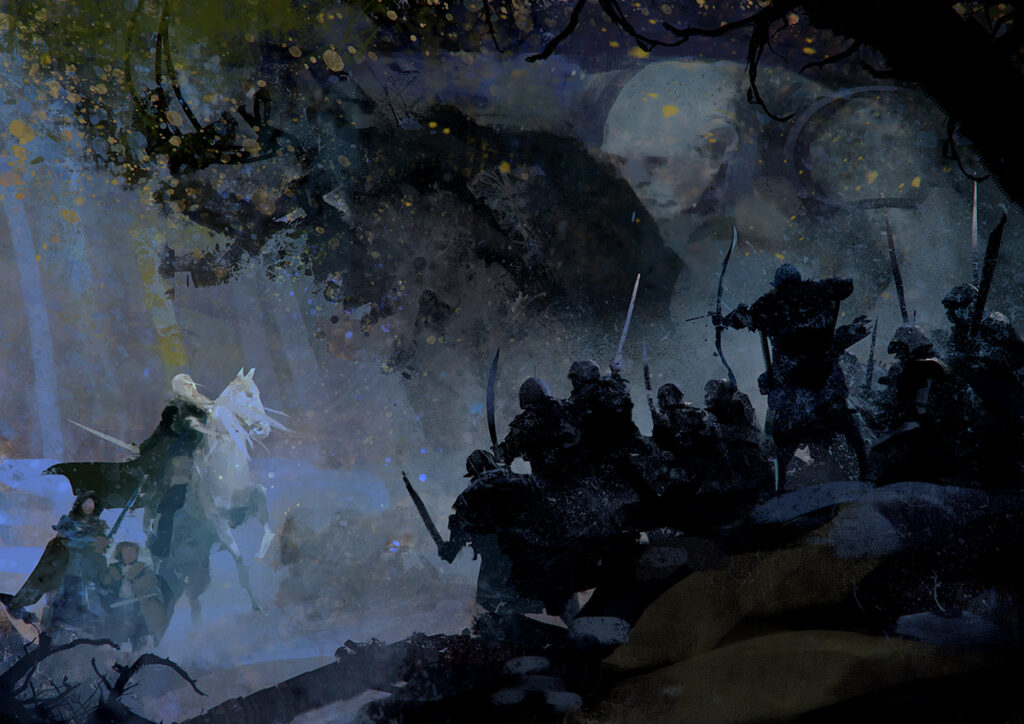 One tabletop RPG to rule them all? Maybe not, but this one’s pretty good nonetheless. (Image credit: Free League Publishing)
One tabletop RPG to rule them all? Maybe not, but this one’s pretty good nonetheless. (Image credit: Free League Publishing)
Then, we have the most famous adaptation of what D&D started: Lord of the Rings. The One Ring is the tabletop RPG of the LotR universe. And, of course, it’s also from Free League. So, it already sets solid expectations.
The game takes place 80 years after Lord of the Rings. Most of your adventures will take place in Eriador. But, you’ll still have access to all the beloved races. You can play as a Human, Dwarf, Elves, Hobbits, and more. Plus, there are different cultures. You have Durin’s Folk, Lindon Elves, and Rangers of the North, for instance. Plus, each character has a calling.
Your culture dictates your attributes and skills. Your calling favors certain skills. Plus, there’s a Shadow Path. It groups tendencies you gain if you don’t resist the Shadow. So, character creation is quite fun. Plus, there’s a lot of room for character progression.
The game has two phases: adventure and fellowship. The adventure phase encompasses events that progress the story. The fellowship phase is mostly about what players do in-between adventures.
Combat is also quite different. First, there’s a volley phase, purely consisting of ranged combat. Then, players engage in close-quarters combat. Naturally, the second one is the main event. During combat, you can use different stances for certain benefits.
As for the game, it’s a weird mix between usual RPG elements and innovation. Character sheets are easy to grasp. But, other systems can be drastically different from what you know. So, it might take a while to get used to.
As such, The One Ring is an interesting experience. If you’re a tabletop RPG savant, you ought to try this game. However, it might not be the best choice for your first game.
#11. Star Wars: The Roleplaying Game: A lot more than D&D in space
 I’ll be honest. I haven’t tried this one. But, I’ve heard great things. (Image credit: Fantasy Flight Games)
I’ll be honest. I haven’t tried this one. But, I’ve heard great things. (Image credit: Fantasy Flight Games)
Let’s go back to the sci-fi-ish setting with Star Wars: The Roleplaying Game. Naturally, this is the best D&D alternative for Star Wars fans. Now, you can jump into the universe with friends in different eras.
The game splits into three systems: from the Age of Rebellion to Force and Destiny. Basically, you can embody any character in the world: bounty hunters, Jedis, and more. Plus, you can get started with The Force Awakens: Beginner Game.
So, this tabletop RPG covers all the basics you need to get started with tabletop RPGs.
The system uses familiar attributes, like Dexterity, Perception, and Strength. You can use different character templates, like a Failed Jedi or a Bounty Hunter. Character creation dictates your skills. Basically, every attribute determines how many d6s you have for that skill.
Some character templates also have Force skills. But, all characters have a Force point to boost their skills. Different books have different character templates. But, of course, you can customize your own character.
The d6 system makes it a fantastic starting game for newbies. It’s very simple. So, you’ll just need a couple of hours to understand all the mechanics. Plus, the books come with predefined campaigns. So, you don’t have to bust your head making up one.
My only issue with Star Wars: The Roleplaying Game is the setting. To be more precise, it’s the lack of settings. You can play basically anything from the rise of the Empire onwards. That means everything before, like the Clone Wars, isn’t there.
Of course, most people love the original trilogy. So, this might not be a qualm for most. But, the Clone Wars is easily my favorite Star Wars era. I find its lore a lot more interesting. Plus, the clones are fascinating characters to me.
#12. Savage Worlds: The best D&D alternative for variety lovers
 This is one game I’m dying to try out soon. (Image credit: Pinnacle Entertainment)
This is one game I’m dying to try out soon. (Image credit: Pinnacle Entertainment)
Let’s dive into another one of my favorite D&D alternatives: Savage Worlds. I’ve talked about several great starter games for newbies. But, Savage Worlds might easily be my #1 recommendation for that.
Savage Worlds lets you do anything. I’m not kidding here. It’s basically a generic RPG that strays from sticking to a world or system. Instead, it’s an open system that adapts to anything you want.
Let’s touch on dice for an example. To do something, you’ll have to roll your skill die. If you get more than 4, you succeed. That’s it. Anything above 4 gives you extra effects, like more damage.
Depending on your race, your dice pool also changes. Your attributes can have anything from a d4 to a d12. Different races have different dice sizes. Building your character takes a few steps, too. You choose a race, assign attribute points, and get skills and edges. Players can choose hindrances for more skill points. Finally, the campaign designs your gear.
Edges are additional abilities, like skill roll bonuses.
That’s pretty much it.
Dice don’t decide initiative. Instead, you pick from a deck of playing. If you get a Joker, something crazy will happen to you. Other than that, combat is straightforward. You roll to see if you hit. Then, you roll the damage. There are stuns, parries, and other familiar mechanics.
Thus, that’s the main reason why Savage Worlds is among the Best D&D alternatives. It prioritizes simplicity and player choice. There are rules for magic, but you don’t have to use it. Or, you can gain magic powers in many ways: from gods’ favors to technology. Plus, you can play in any setting: medieval, fantasy, sci-fi, and more.
#13. Call of Cthulhu: A D&D alternative focused on “realism” and high stakes
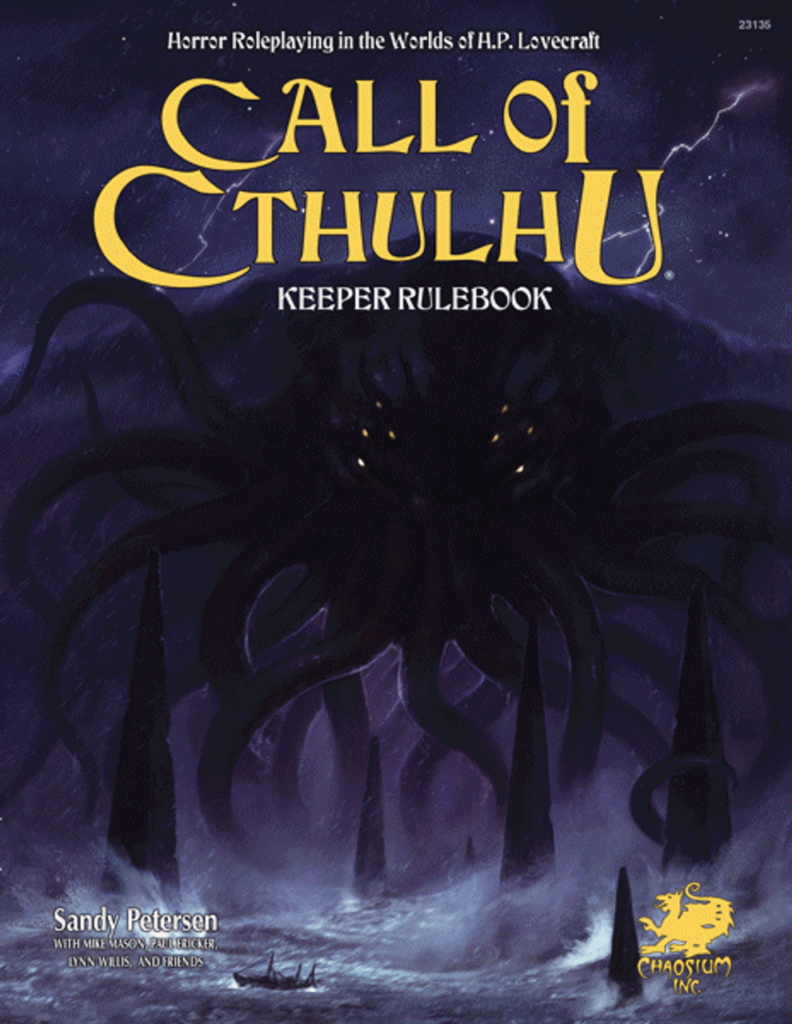 This game can be extremely brutal. You’ve been warned. (Image credit: Chaosium)
This game can be extremely brutal. You’ve been warned. (Image credit: Chaosium)
Call of Cthulhu is another game I’m quite fond of just from reading the rules. With the whole OGL 1.1 scandal, my interest got renewed. That said, beware: this game can be nerve-wracking.
Call of Cthulhu is mainly a horror and mystery game based on H.P. Lovecraft’s mythos. It’s somewhat similar in setting to World of Darkness. It’s a dark version of our world. However, it often takes place in the 20s or 50s. Though, you can play it in modern settings.
Most campaigns revolve around the supernatural. You’ll be facing cosmic beings and their cultists. All the while, players will be trying to unveil their mysteries—and how to stop them. In that sense, players will mainly be investigators.
As you may infer, mystery is the core of Call of Cthulhu. You’ll be solving countless puzzles and riddles. Slowly, they’ll start coming into contact with the major threat. It’s a constant buildup to a terrible climax.
And, I say “terrible” literally. The game inevitably leads to the characters’ doom. So, don’t get attached to your character. They can succumb to injury or go insane because of the horrors they’ll experience. A single bullet can end a history spanning weeks.
Luckily, character creation is fairly straightforward. You roll 3d6 and multiply the result by 5. This determines the percentage of your attributes, from 15% to 90%. The age you choose also alters their characteristics.
Then, you choose an Occupation. These can range from a military officer to a librarian. Each Occupation has its advantages. After that, you create a backstory and spend Credits buying equipment.
Combat is worth pointing out. Instead of difficulty, characters use opposed rolls. That makes encounters a bit less predictable. But, that’s not everything: there are chases, knock-outs, and more.
Finally, you’re not just dealing with your health points. Sanity also plays a huge role. Sanity rolls may result in stat changes and characters losing control. Improving your skills also lowers your Sanity. So, the stakes keep getting higher.
#14. Haunted West: The best D&D alternative set in the “old” west
 This is another unique setting you should definitely look at. (Image credit: Darker Hue Studios)
This is another unique setting you should definitely look at. (Image credit: Darker Hue Studios)
Lastly, I want to touch on a different D&D alternative: Haunted West. This game takes you to the Old West. But, it’s also centered around the supernatural. You can experience an extremely historically-accurate game.
But, you’ll also use magic and face demons, vampires, aliens, and more.
Haunted West is a fantastic merge of history and fantasy. The entire setting is the best representation of any time period you’ll find. Yet, it also adds supernatural elements that turn it into a fascinating game.
You’ll run into historical locations and people. Then, you’ll help them fend off demons and sorcerers. By now, you should get where I’m going. Haunted West is the perfect balance of history and literary imagination.
However, it’s also a pretty weird game. The creators came up with a unique system: The Ouroboros System. It uses a d100 system that’s very different from anything I’ve played before. Luckily, that doesn’t mean it’s tough to digest.
Moreover, it offers different variations to get closer to what you’re used to. There’s a narrative-focused and miniature-focused play style. Therefore, you’re not entirely out of luck.
Characters are also amazing. You’ll be mostly playing as Frontier legend stereotypes. That includes gunslingers, bandits, preachers, and more. But, it also uses archetypes like the Gadgeteer and Mystic.
The players and GM have full control over what they want to play, too. You can dive into its full weirdness. Or, you can play a traditional Wild West adventure, with zero supernatural nuance.
Overall, Haunted West is the best D&D alternative if you’re looking for something unique. Its balance between historical accuracy and the supernatural is fascinating. Just keep in mind that the system is different from everything else. So, that knowledge won’t carry over to other tabletop RPGs.









Leave a comment